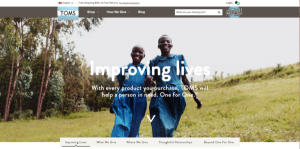The elevator pitch has become a staple for any hopeful entrepreneur. It has traditionally taken hours of perfecting and memorizing, and still the entrepreneur often finds herself a nervous wreck before presenting. But having a set presentation isn’t the best way to show off your company. You need to keep the important information, but memorizing your elevator pitch will leave you sounding generic and distant.
Keep It Conversational
The best pitches are those you don’t realize are happening. When you memorize your elevator pitch, it often comes off too much like a speech and not a conversation. No one likes being talked to instead of with. As Diego Serebrisky puts it, “the key is to communicate in a natural and articulated way, showing confidence and passion but without overacting. “ Keeping it conversational will put the listener at ease and this usually leads to an open minded audience.
Keep It Customized
Like the conversational tone, it’s important to customize your pitch according to your audience. The number one trait you want to convey is how your issue solves your audience’s problem. You can’t do this without realizing who you’re talking to. A pitch to an investor sounds very different from your pitch to some guy on the street. Know what your audience is looking for. It’s okay to have some key facts memorized, but you should be able to pick and choose what you include. It keeps your pitch passionate and informative, but also lets the person know what exactly they want to hear. You only have so much time, so you need to optimize your information the best you can.
Keep It Concrete
Chris O’Leary named 9 essential aspects to the perfect elevator pitch, but the one that I think is absolutely vital out of the list is to keep your pitch concrete. In his words, “the pitch should be tangible and easily grasped by your audience.” As great as stories are, you simply don’t have time to tell a novel. It needs to be casual, conversational, customized, but also numerical. By the end of the elevator pitch, I should have enough substance to have a basic knowledge of your company while still desiring to know more. In addition, withholding key metrics of the company can come across as if you are trying to hide something. Now this doesn’t mean telling everyone last year’s cost per acquisition, but it does mean conveying a basic view of how your company is monetized.
Your company’s competitive edge should be your pitch’s backbone, and you should back it up with your numbers. On top of that, customization and conversational language are used as a type of personal marketing that make your company and yourself come across as inviting and caring. None of these characteristics can be achieved with a memorized speech. If you are truly passionate about your startup, you naturally exude zest. Instead of memorizing a speech, try memorizing your key statistics or competitive advantages. It is much more effective to form a speech on the spot with these numbers than forcing a preformed monologue onto an unsuspecting listener.
(182)
Report Post





